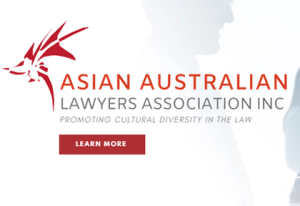Diversity important for business success – law group says
Diversity and inclusiveness are increasingly being recognised as business imperatives, according to an Asian lawyers group.
The Asian Australian Lawyers Association (AALA) says that diversity and inclusion should be “embedded” in organisational strategies.
 AALA members Dominic Nguyen and Kingsley Liu say it is particularly important to “inspire and propel” people from non-Anglo-Saxon backgrounds.
AALA members Dominic Nguyen and Kingsley Liu say it is particularly important to “inspire and propel” people from non-Anglo-Saxon backgrounds.
Mr Liu, AALA NT Branch member and AALA national president, says the AALA is currently working on adding management, leadership and cultural skills into its programs in addition to its national mentoring, legal education and networking activities.
“We have a significant number of mainstream Australians in our organisation who are attracted to the range and quality of opportunities for members and at committee level, and we wish to increase this further,” Mr Liu said.
“We have started to develop the work opportunities and business hub, and we are keeping an active internal communications portal to link members over a range of interests.
“We are broadening our approach to work with and recognise those organisations in industries beyond the legal industry. We aim for effective collaboration with stakeholders in government and other industry groups.
“Our philosophy is that by contributing to improvements and improving access for justice for culturally and linguistically diverse (CALD) persons, is not only getting us a more effective legal system for all but better infrastructure of people and policies that reflects diversity and inclusion within the system is a natural consequence,” Mr Lui said.
Moving forward, legal practices and law firms should report on cultural diversity in addition to gender equality, and organisations should start addressing inclusion from a social impact rather than a public relations perspective, he said.
“Organisations need to treat diversity and inclusion beyond the role of human resources. It should be embedded in their strategy and as an agenda item on boards, in all the policies, in the work culture and overall structure of the organisation. In addition, there should be safe and appropriate channels for reporting and for grievance management and restorative practices,’ Mr Lui said.
“Diversity should be showcased through contributions and teamwork of people with diverse backgrounds,” he said.
“You cannot fix what you cannot see. Organisations, including law societies and bars, that are serious about creating meaningful change on diversity must collect and leverage data regarding the composition of their workforces and members,” Mr Lui said
While people of a multicultural background represent 25 per cent of Australia’s population – this currently is not reflected within the legal profession.
“The number of Asians in law school is very high, but the numbers drop to some extent at the entry-level of the profession and then keep decreasing incrementally in the higher echelons of the profession to the extent that it drops to a dramatic 2 to 3 per cent at the very top,” Mr Lui said.
“This was evidenced in our cultural diversity report in 2015, which analyses cultural diversity in the legal profession. We feel the numbers haven’t changed significantly since then.
“Beyond a moral imperative, diversity is increasingly recognised as a business imperative. A diverse organisation can see things from different perspectives and be more effective, as well as ultimately empathising with Australia’s incredibly diverse population,” he said.
The AALA is the first incorporated association in Australia to focus on the growing number of Asian Australian lawyers in the profession.
AALA is a national, non-for-profit organisation with Branches in seven states/territories, welcoming Members from all walks of legal life including students, lawyers and principals from small, medium and large firms, barristers, in-house and government lawyers.
Since its establishment, AALA has become a leading voice for cultural diversity in the legal profession, working with peak bodies and organisations to promote intersectional diversity in the law and equitable access to the law.












